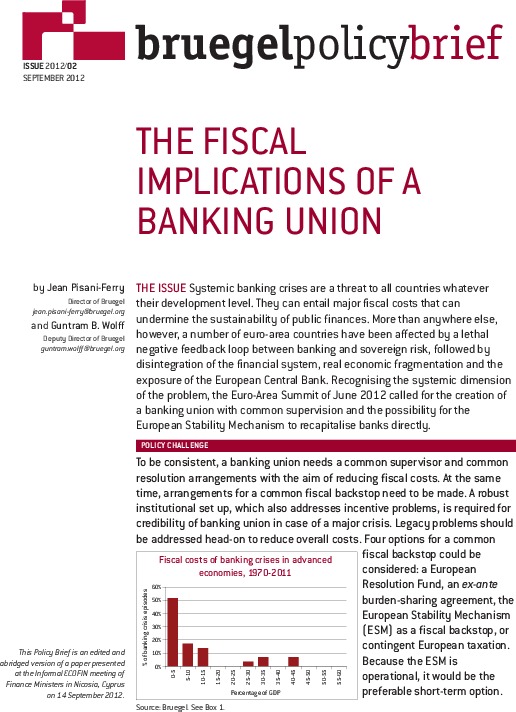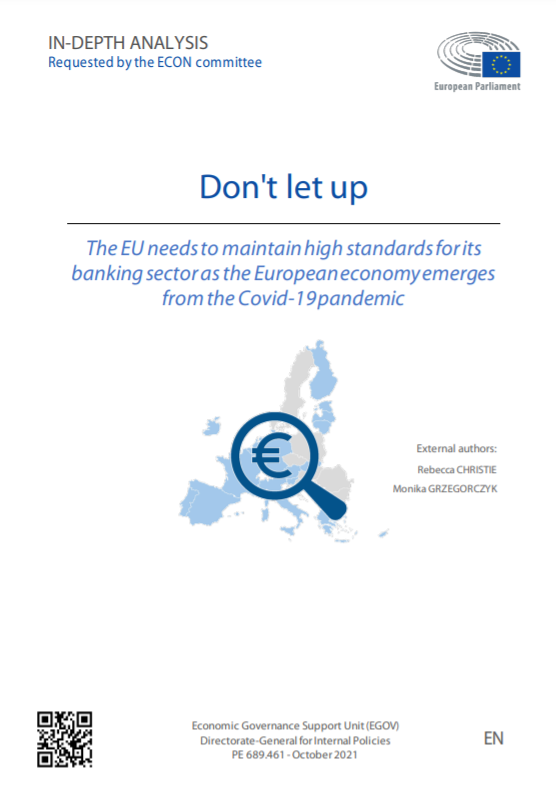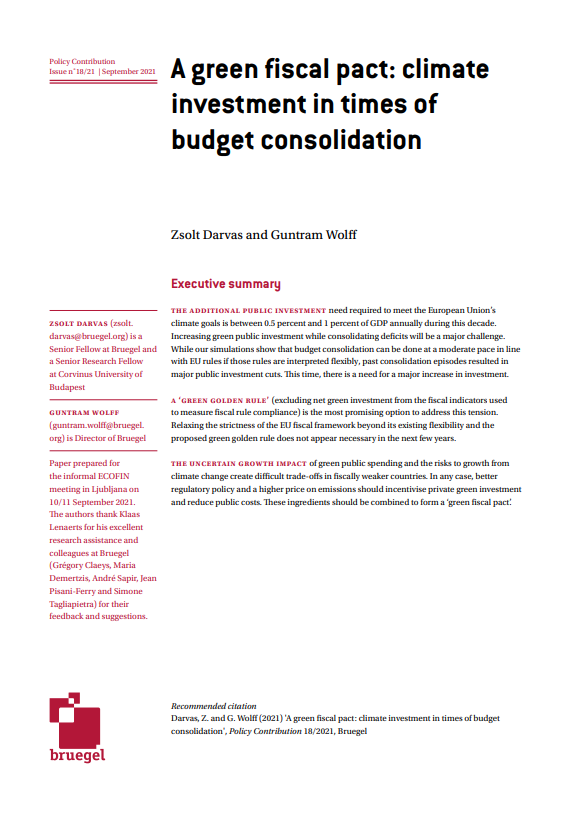Policy Brief
The fiscal implications of a banking union
Systemic banking crises are a threat to all countries whatever their development level. They can entail major fiscal costs that can undermine the sustainability of public finances. More than anywhere else, however, a number of euro-area countries have been affected by a lethal negative feedback loop between banking and sovereign risk, followed by disintegration of the financial system, real economic fragmentation and the exposure of the European Central Bank. Recognising the systemic dimension of the problem, the Euro-Area Summit of June 2012 called for the creation of a banking union with common supervision and the possibility for the European Stability Mechanism to recapitalise banks directly. The findings of this paper were presented at the Informal ECOFIN in Nicosia on 14 September 2012.
Systemic banking crises are a threat to all countries whatever their development level. They can entail major fiscal costs that can undermine the sustainability of public finances. More than anywhere else, however, a number of euro-area countries have been affected by a lethal negative feedback loop between banking and sovereign risk, followed by disintegration of the financial system, real economic fragmentation and the exposure of the European Central Bank. Recognising the systemic dimension of the problem, the Euro-Area Summit of June 2012 called for the creation of a banking union with common supervision and the possibility for the European Stability Mechanism to recapitalise banks directly.
The findings of this paper were presented at the Informal ECOFIN in Nicosia on 14 September 2012.






















